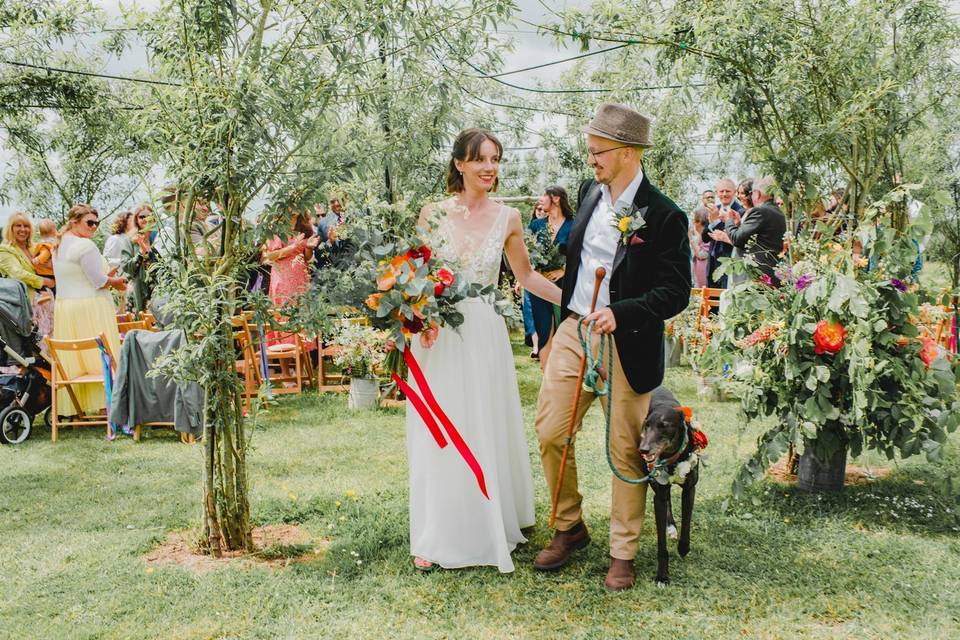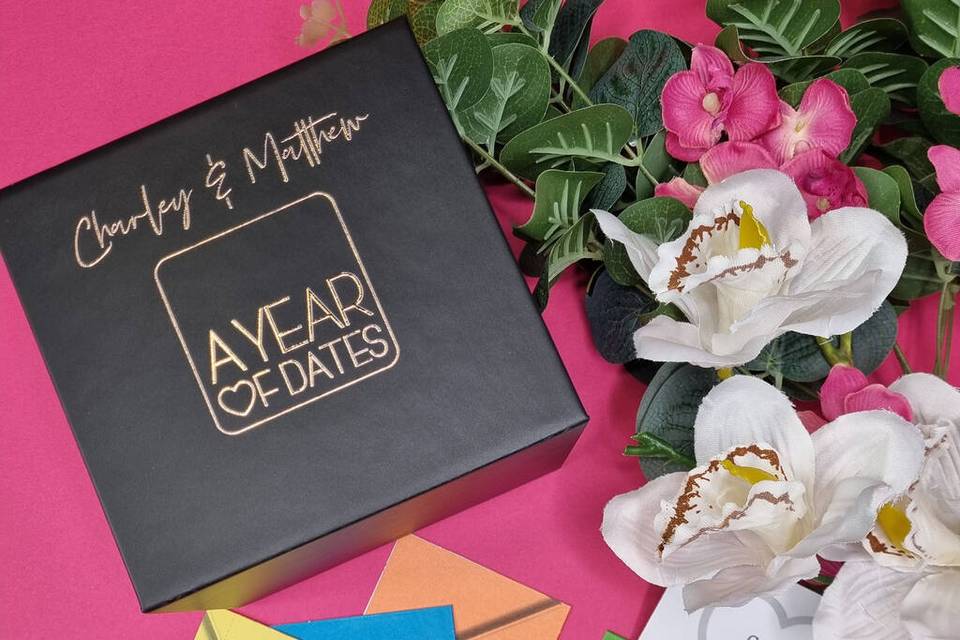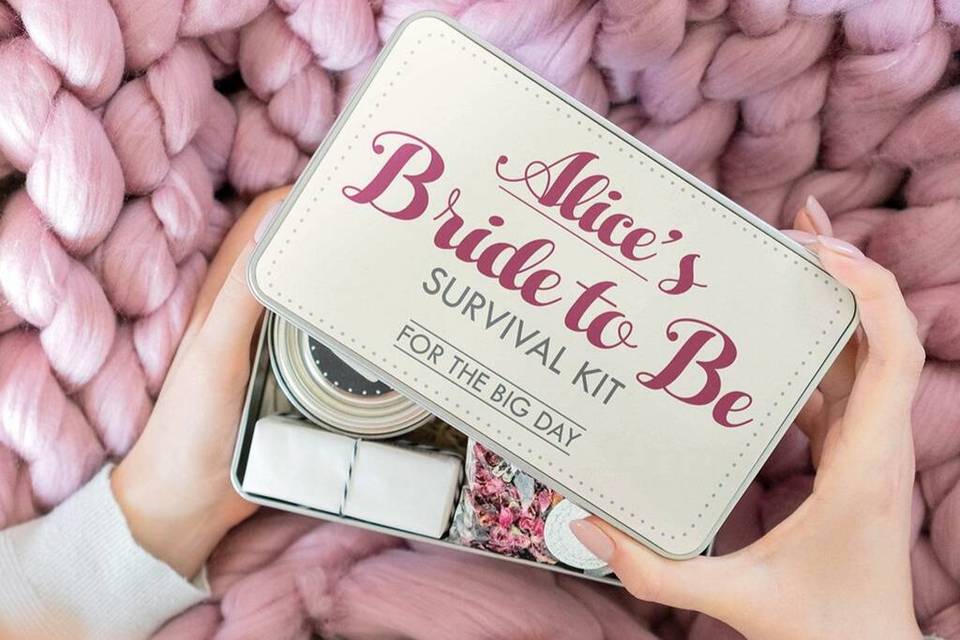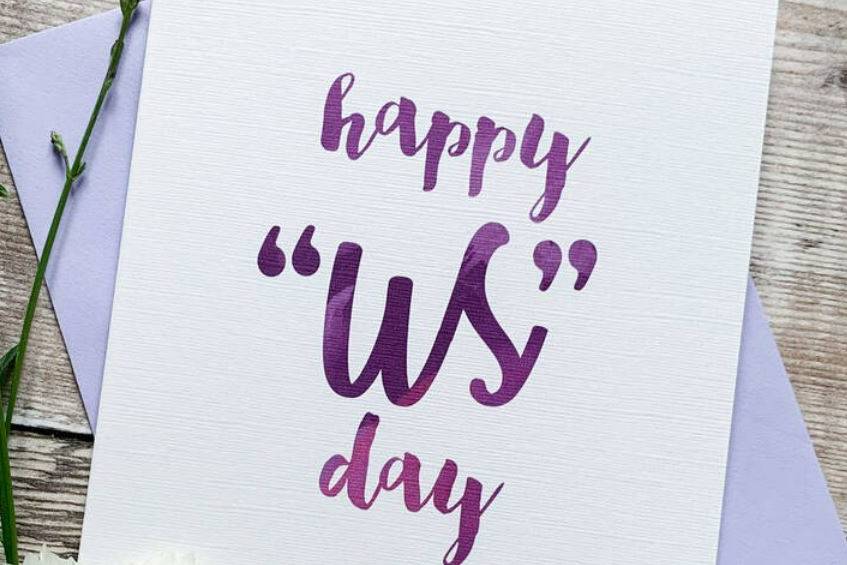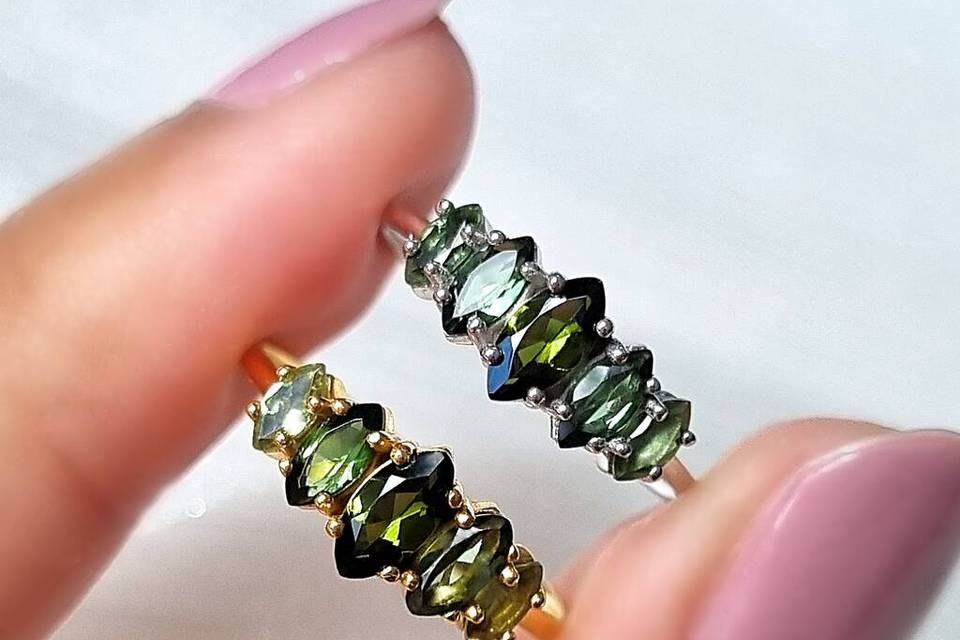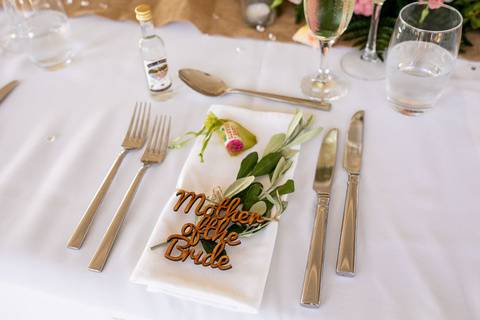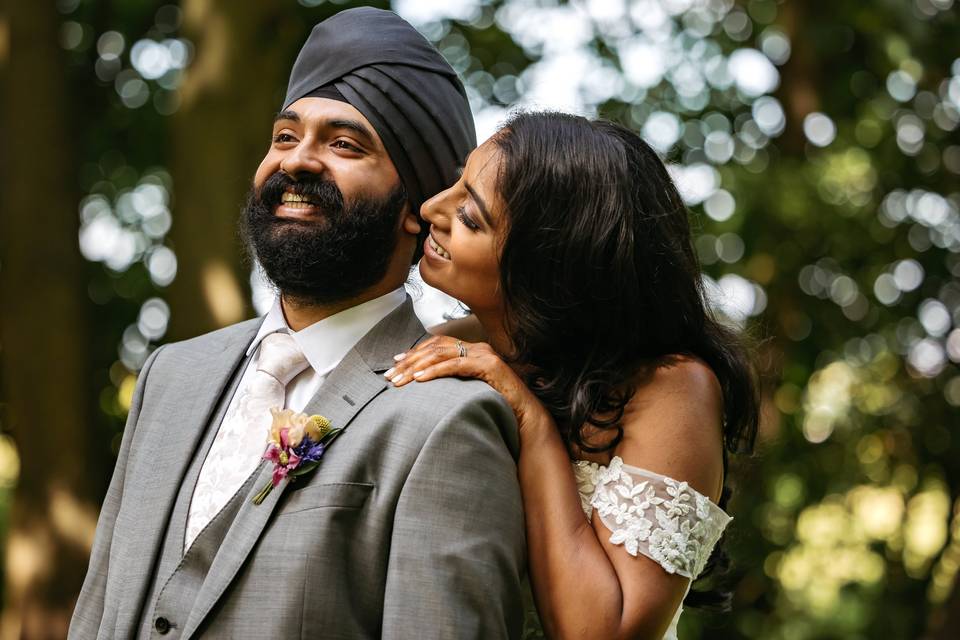Why (Reluctantly) Having a Traditional Nigerian Wedding Was the Best Decision I Made
Having grown up in the UK, bride Tolu Finn wasn't sure about having a traditional Nigerian wedding - but it turned out to be one of the best days of her life. Here's what she learnt about herself and her heritage while planning her big day
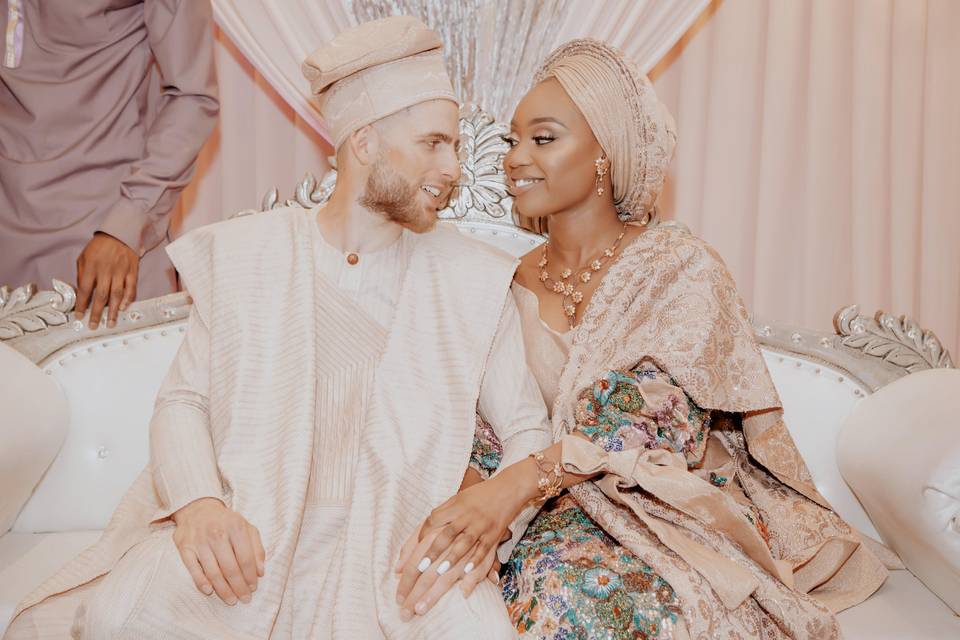
Here’s a fun fact, my (then) fiancé and I didn’t initially want a traditional Nigerian wedding.
As a Black bride who grew up in the UK, the initial desire to escape a traditional Nigerian wedding was inevitable. We were looking for something quick and simple and our only requirement was being able to say ‘I do’ in front of the Lord (in fact, we heavily considered a registry office and just us two). My husband, Joshua, and I were in love; we understood the meaning of marriage and that it wasn’t about the day of the wedding but every other day after. Joshua and I met in church and, though some call it a coincidence, we call it a match made in heaven.
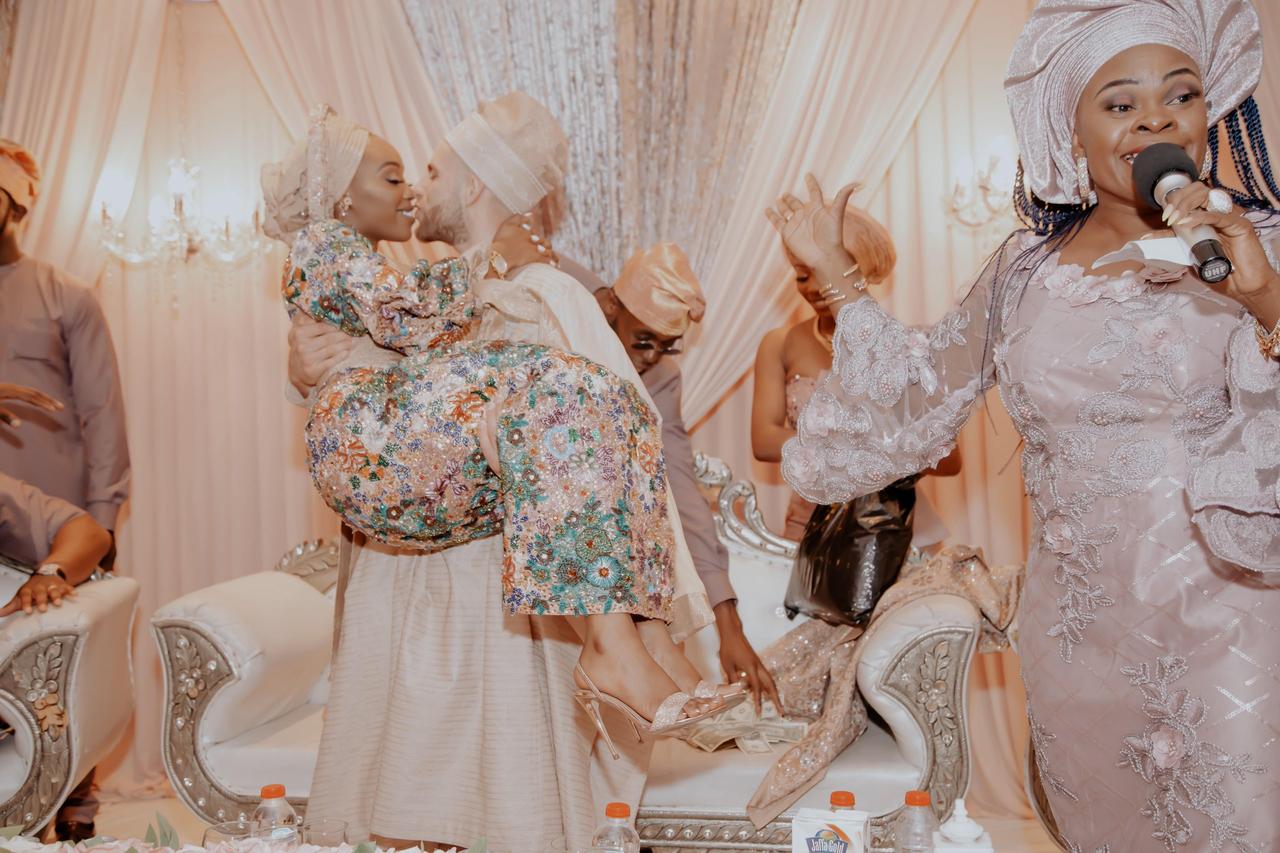
I was born in Lagos, Nigeria and I moved here when I was just a baby, growing up in Ireland with my sister and brothers. Though my mother raised us to adapt to Western culture, she still made sure to maintain our sense of Nigerian heritage and so getting married the ‘Nigerian way’ to my family was not up for question.
I have never considered myself a ‘traditional’ person, unlike my parents. Yet marrying a man of Turkish and Irish descent didn’t make them abandon their desires for their eldest daughter and what they imagined her wedding to always be like - if anything, it only intensified their dream.
Before mine, I had only ever been to one other traditional wedding and I didn't know what to expect or how to plan one, but I noticed that being there felt nostalgic and beautiful. Although I never grew up in Nigeria, I felt strongly connected to my culture and started to realise that the feeling was inescapable, and that this wasn’t a negative thing.
Once we decided to have a traditional wedding, we discovered it would be our best decision for lots of reasons:
We United Two Families (With a Bit of Give and Take!)
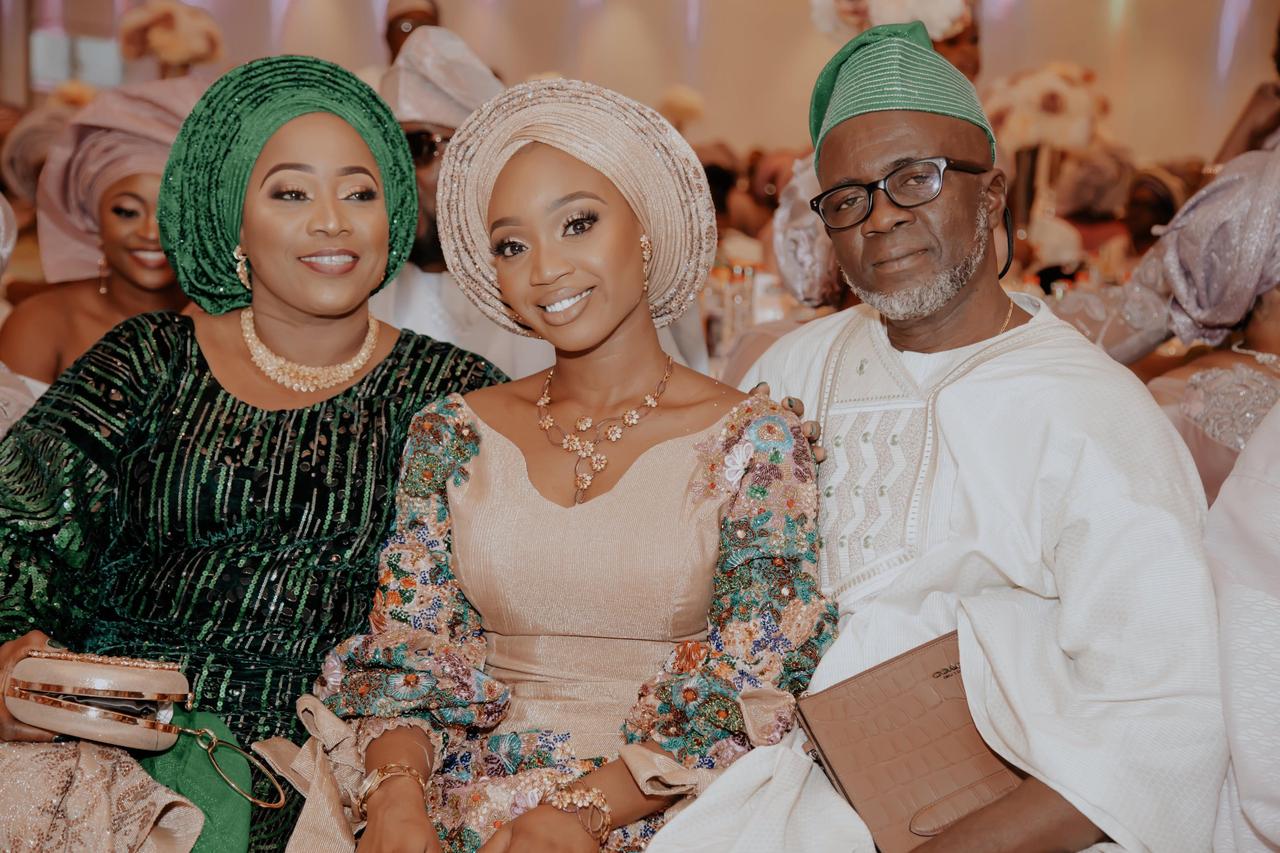
Nigerian weddings are very much a marriage of two families coming together and becoming one. Joshua is an English man with Turkish/Irish roots. He grew up with his mother and sisters and, in contrast to my own family, they were pretty relaxed in terms of traditions they wanted to uphold during the wedding.

Prior to meeting me, they didn't know much about Nigerian culture, so it was my job to explain it and bring it to light through the celebration of our love. This part was difficult at first - Joshua's family needed time to understand certain parts of Nigerian culture and my parents were not always willing to compromise and didn’t always take the time to explain.
Our Faith Was Still at the Heart of the Day

Our Christian faith was the centre of my home and the key foundation for our wedding. The truth is culture can sometimes override faith, so we sat with our parents and made it very clear from the beginning that this needed to be represented. I had my mother and her sisters go through the ceremonies in detail so I could double-check each element that was taking place on the day.
We Learned to Love the Chaos
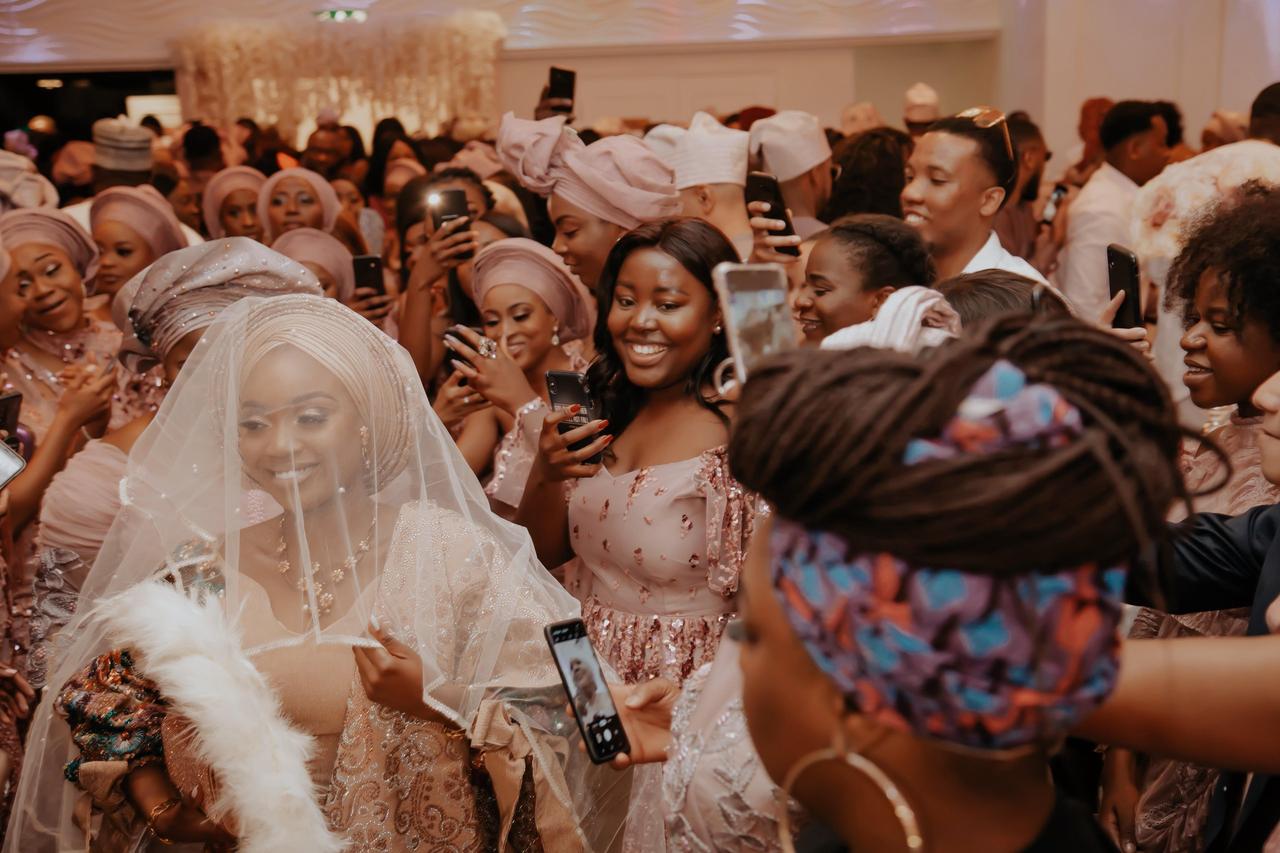
The weddings tend to be very big and are not what one may describe as 'intimate'. Everyone and anyone can show up and often you may end up catering to a vast majority of guests you don’t know. This isn’t necessarily a bad thing. Even those you may not know personally become a part of the celebration in that moment, supporting your love the same as those closest to you and resulting in a colourful celebration - both in a literal sense with the outfits we wear, but also the atmosphere.

Needless to say, once it was decided that we would have both a traditional and non-traditional wedding, it became quite an overwhelming process. This is because I am a very detail-oriented person and I love making everyone feel welcomed, a goal harder to achieve when there’s no such thing as name tags or allocated seating. By all means you may try to initiate some order, but I can guarantee that in a Nigerian wedding this order will last all of 10 minutes. The best thing you can do is embrace the sheer volume of guests and see the beautiful side to what I would describe as organised chaos.
It Was So Special to Be Able to Involve Our Families
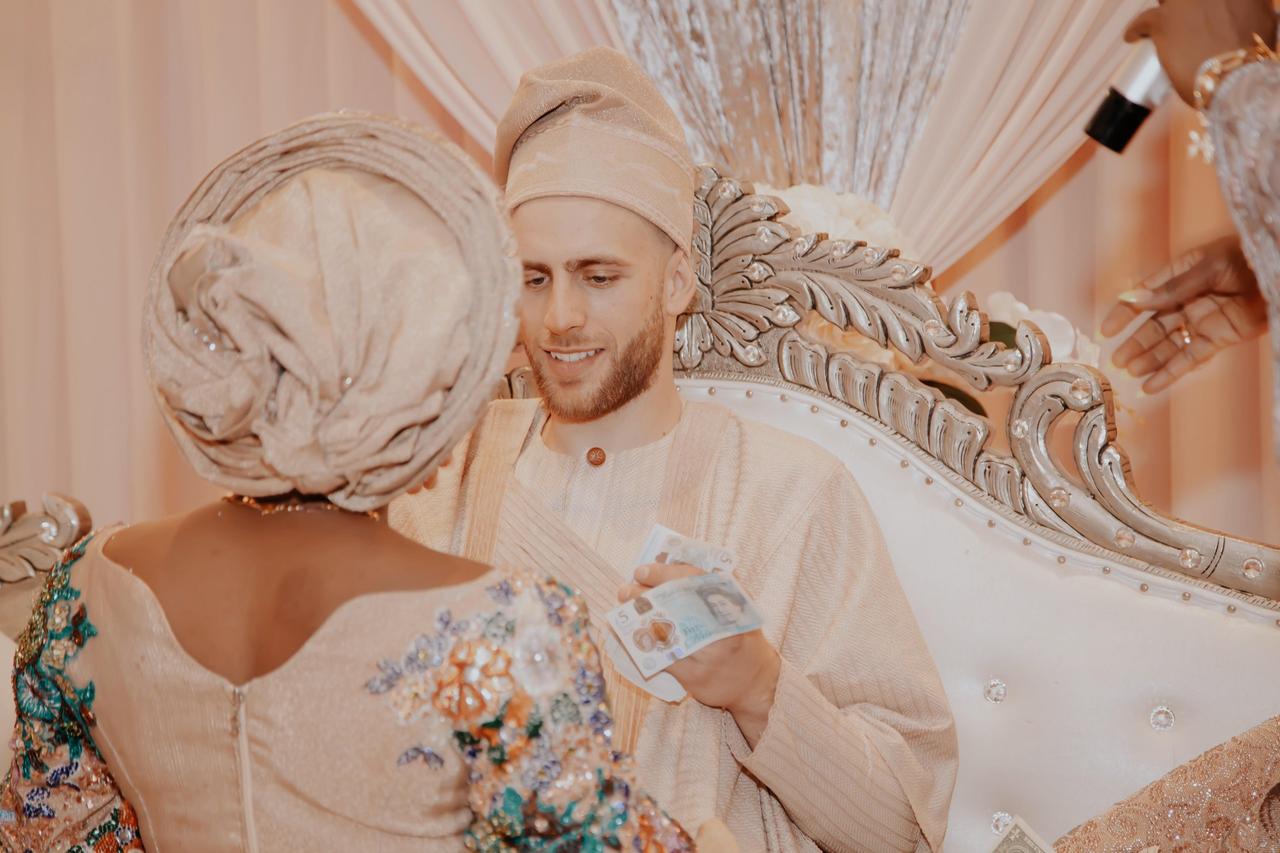
Knowing all this, combined with my passion for events and design, having a wedding planner for the overall process was not essential for us, however, a coordinator on the day was vital. I relished the opportunity to take on the wedding planning process, bringing in my family to consult on traditional aspects - e.g. picking out the fabric, the location, and the vendors - but making sure that Joshua and I picked the important elements independently, such as colour, theme and the big decorative elements.

Thankfully, once the planning was underway, both families were very united and ready to play their part. I enjoyed hearing their ideas on fun aspects of the wedding such as DJs, food and dances. In Nigeria, the wedding is viewed as much as the parent’s day as it is the bride and groom’s. Thus, I wanted my parents to feel involved and allowed them to help pick an initial selection of vendors. I was the first in the family getting married so no one really knew the exact procedures but the importance of the event was palpable.
Our Creative Sides Could Flow Free

Fortunately, due to my creative nature, I knew what I liked and disliked so finding inspiration was easy. I did an initial search on Pinterest and Instagram pages like @bellanaijaweddings and @bimmms24 for various ideas and also looked at hashtags such as #traditionalwedding, #bellanaijaweddings, #Nigerianwedding, #Nigerianbride, #Ashoke and #Asoebi. I wasn't too fond of random colour and I made sure that the décor on the day and outfits all came together seamlessly, so mood boards were essential.
In Nigerian weddings, families are represented by a specific colour of fabric and headtie called Aso ebi and Gele, but in our circumstance we decided to choose different colours to represent our friends, our parents, and our parent’s friends. Our parents' and parents' friends' fabric was from @kubisfabrics__ng. One final fabric and colour, known as Ashoke, was worn by myself and Joshua as the bride and groom, and it's made from a special material woven by the amazing Bimmms.
The Traditions Will Be Some of the Most Treasured Parts of the Day

Usually, the day is run by a master of ceremony that represents each family separately, but as Joshua and his family were English, we only had the one master, called the ‘Alaga’, representing both families. She went around with the talking drums, she performed all sorts of acts, including her paying the family before I could come in, singing songs and dancing a lot. As part of my Yoruba culture it is tradition to spray cash on the bride and the groom, an aspect both families enjoyed incorporating into the big day and we had our ‘guys and girls’ collecting the money in traditional totes.
When it comes to the cost of the weddings, though traditions may sound like an added expense, the portfolio of the costs stack up differently. For example, in a Western wedding, more priority is given to the finer details, i.e. the table layout, colour scheme, crockery, personalised name tags and favours or assigned seating. In a traditional Nigerian wedding, the cost is mainly stacked in the food, the DJ (we had the brilliant DJ KAY Xclusive) and entertainment of the night.
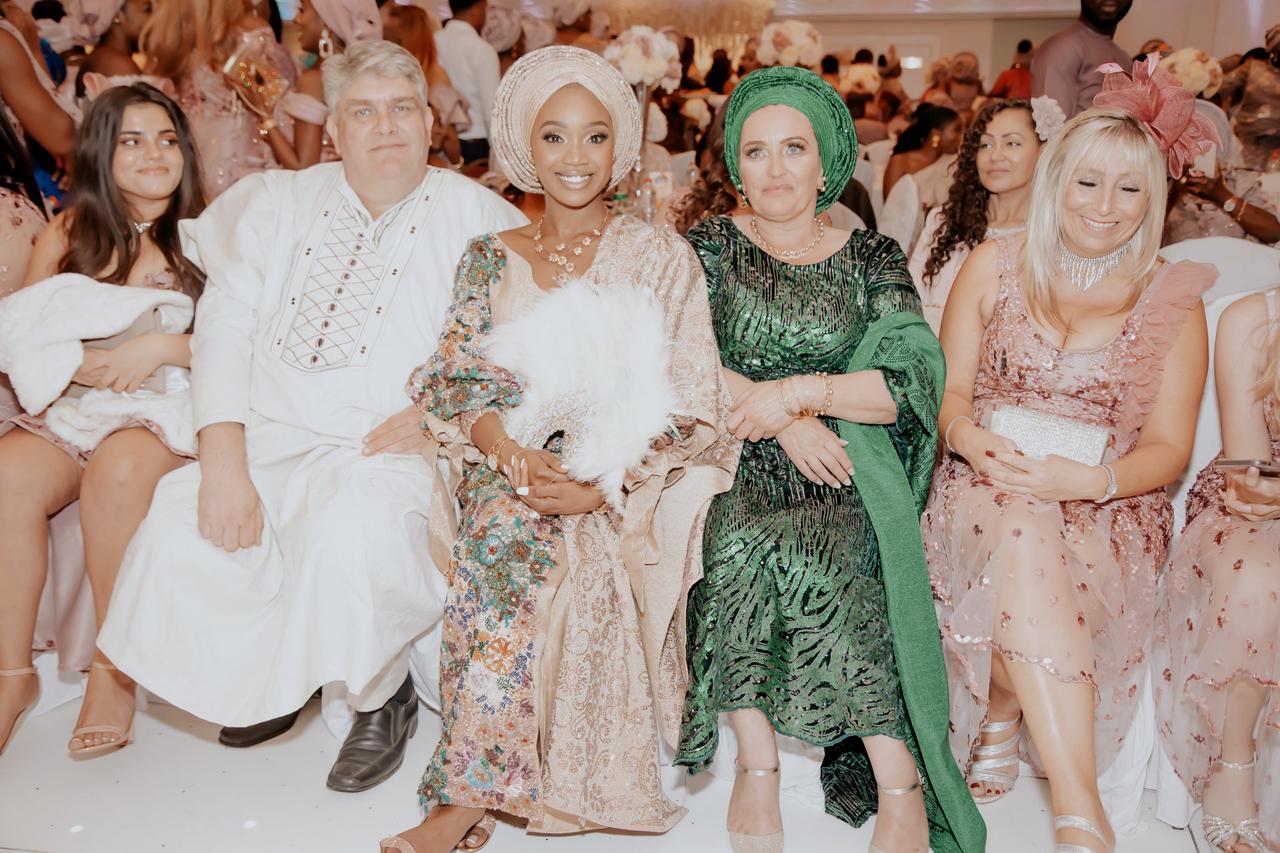
Music and food are very big factors we consider when planning a traditional wedding; it is generally the deal breaker (you always want more than enough rather than too little as most Nigerian people will remember the food on the day). We had a live band, Diya Ojo, on the day that was arranged by and paid for by my Aunty as part of her generous contribution. The Nigerian culture is quite unified so a lot of family members and friends of the parents help where and however they can. This goes back to my earlier point about how even those you may not personally know join in and offer their full support.

One of the major performances of the ceremony on the day was when Joshua and his male friends and family lay on the floor and prostrated in front of my parents and extended family. Once that was done, I came in dancing with my girls and my bridesmaids who formed a circle around me, and there I was ‘presented’ to my groom and our guests.
While I was coming out and being prayed over by my family, I became very emotional and that feeling I expressed earlier that came over me at my friend’s traditional wedding reappeared. In that moment, all the planning and hard work had come together. The feeling was a combination of absorbing the joy my parents felt witnessing their daughter in this traditional moment of celebration, as well as the oneness felt throughout the venue. The unity is almost indescribable and is easily one of the best moments of my life.
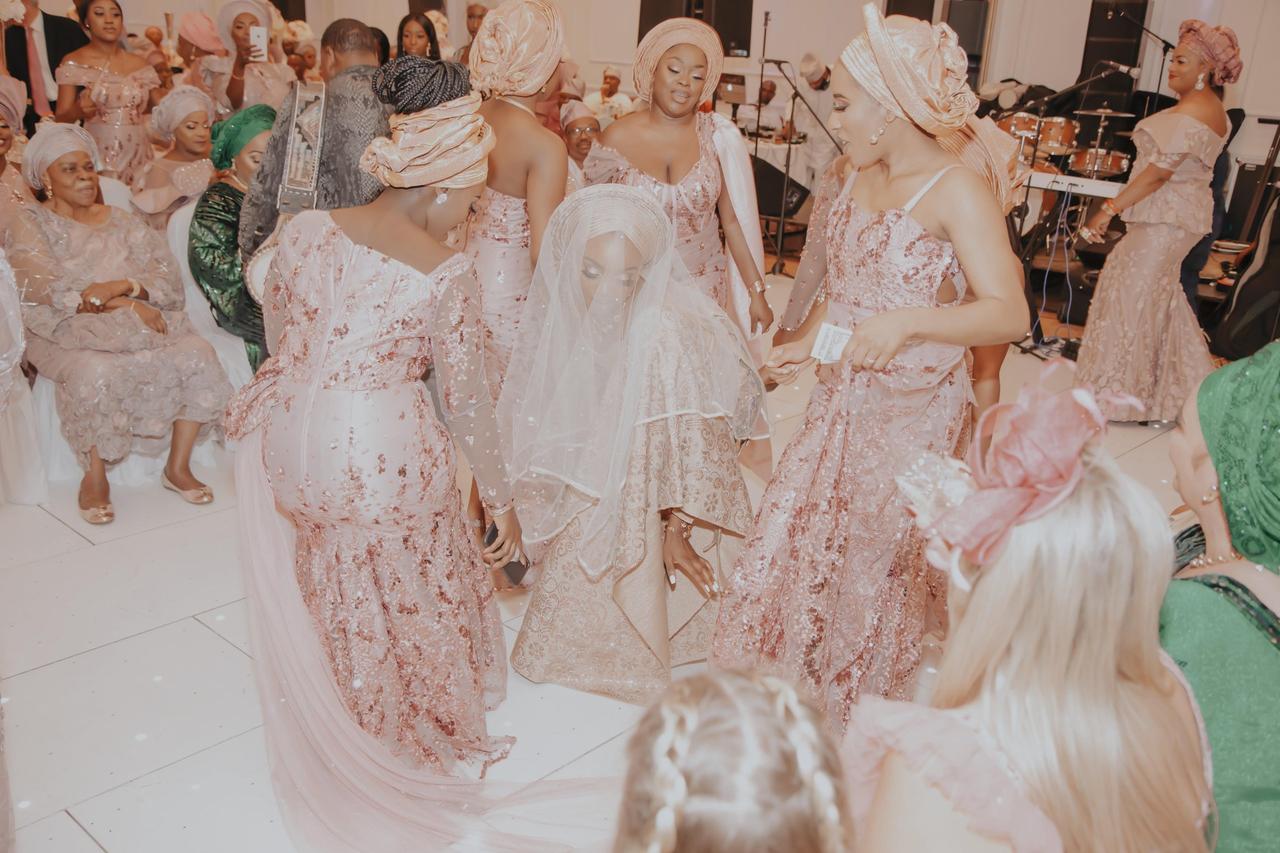
Our traditional wedding definitely started off as a favour for my parents, it's a celebration we wanted to use to honour them. Did I want one at the start? No. Would I have one again? Yes. This is because it quickly became evident that the traditions of Nigerian culture are, and have always been, a big part of who I am.
I immersed myself in the experience and although it was not an easy process, I have no regrets as these traditional aspects were what led to one of the best moments of my life. My one takeaway for new brides that may be balancing multiple cultures? Don’t ever feel as though you must suppress a part of yourself while planning your wedding. It should be a celebration of all aspects of you and your fiancé. (Oh, also, don't let your finance pick the colour scheme for the day!).
Photography by Ray Productions. You can follow Tee on Instagram at @tee.finn to see more gorgeous wedding photos!

